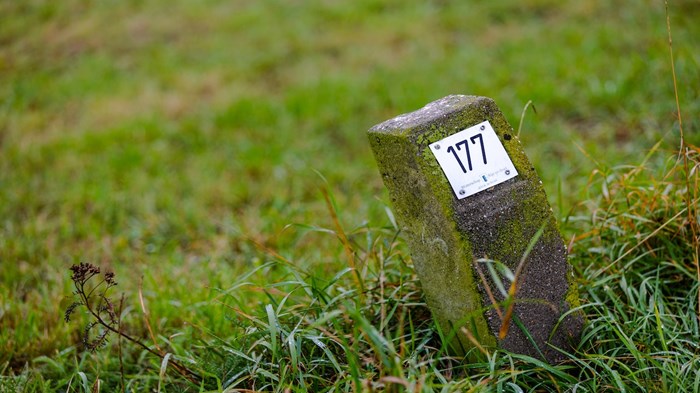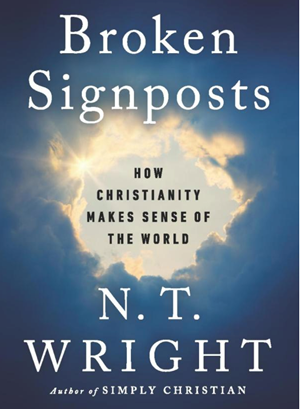Broken Signposts

Bringing together seven of the most important ideas in our world… before I get on with it, here are the seven:
Justice
Love
Spirituality
Beauty
Freedom
Truth
Power
These seven are the focus of N.T. Wright’s newest book, Broken Signposts: How Christianity Makes Sense of the World. As such they are a narratival approach to the Christian faith and even an apologetics of a different sort (not one that defends the faith so much as presents it in a compelling manner).
We live and we experience and we bank on some things to be rock-like in their value and truth, and we encounter a world where those rock-like ideas function well enough until they don’t, and then we are set off wondering why.
But those seven are signposts to how the world works, or how the world should work and how it works best. Are they indicators, too, of God? Read on and join me in reading this new book.
What are these signposts?
Signposts name a reality and point us in a direction. Likewise, these seven signposts name realities that all human cultures value as well as pointing beyond themselves to the meaning of life, to the meaning of the world. They indicate, in fact, how we ought to “make sense” of the world – how we ought to understand the way the world is and the challenge of being human within it. The fact that we care about them and are puzzled by them is itself telling us something about the deep "sense” of the world.

Wright thinks these seven are hard wired in some sense into us, into us all – they are universal ideas.
Every philosophy, every religion, every political system, every society holds by implication some kind of view of the seven signposts I have in mind. In fact, every single child, woman, and man has a view about them as well, though many people just take them for granted – until something goes wrong and then suddenly the relevant signpost comes back again in the form of a challenge, a question, or a puzzle. If you try to ignore any of them, they can and will take their revenge. A genuinely human life – a genuinely wise human life – is one that learns to recognize these signposts, puzzling though they often are, and to wrestle with their meaning intelligently and with sensitivity to the many other people who are trying to do the same thing in their own way. Perhaps these seven function something like those security systems in which you can only get into the innermost safe if all seven independent key holders show up antI work together.
Do they show us something – as Tom’s friend Marc Borg used to say – “more”? Are they indicators of the beyond? Are they icons of a deeper reality? Yes, so he thinks:
If these signposts appear to provide us, in however oblique a way, with clues as to how we might make sense of our world, do they also provide us with pointers to the possibility of a Creator, a God who made the world and still cares for it? Many have thought so, suggesting that our innate sense of justice, freedom, and the other qualities points to the strong possibility that we humans are made to reflect, in our very instincts, something of the character of this Creator. But this view has been under such sustained attack in the last two centuries that we cannot simply assume it; and, indeed, the “brokenness” of the signposts has been seen, again and again, as meaning that no such inference can be made.
Jesus Creed is a part of CT's
Blog Forum. Support the work of CT.
Subscribe and get one year free.
The views of the blogger do not necessarily reflect those of Christianity Today.




















